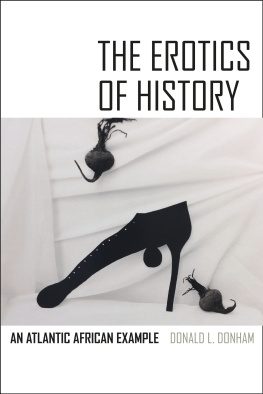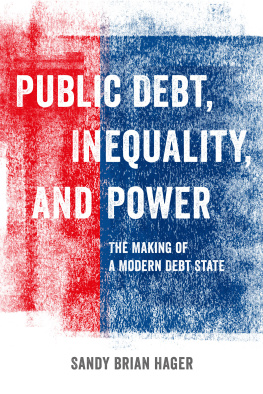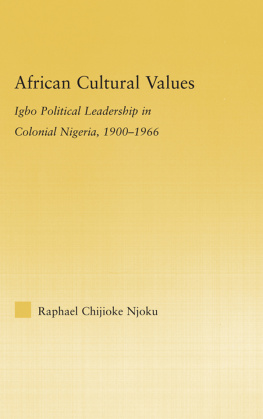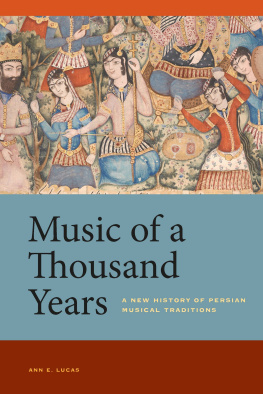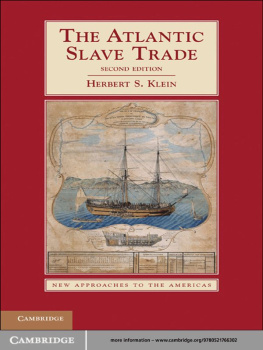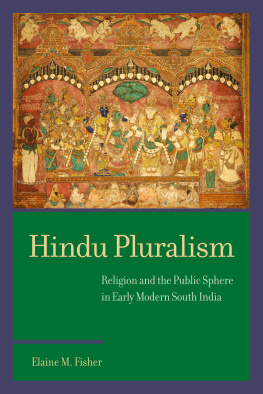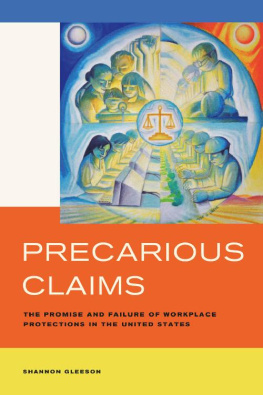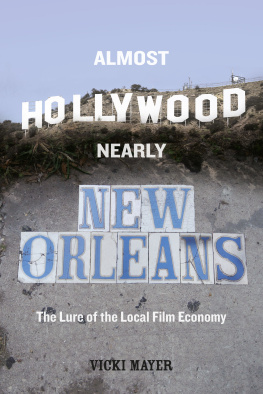CONTENTS
Luminos is the Open Access monograph publishing program from UC Press. Luminos provides a framework for preserving and reinvigorating monograph publishing for the future and increases the reach and visibility of important scholarly work. Titles published in the UC Press Luminos model are published with the same high standards for selection, peer review, production, and marketing as those in our traditional program. www.luminosoa.org
The publisher and the University of California Press Foundation gratefully acknowledge the generous support of the Ahmanson Foundation Endowment Fund in Humanities.

The Erotics of History
The Erotics of History
An Atlantic African Example
Donald L. Donham
UNIVERSITY OF CALIFORNIA PRESS

University of California Press, one of the most distinguished university presses in the United States, enriches lives around the world by advancing scholarship in the humanities, social sciences, and natural sciences. Its activities are supported by the UC Press Foundation and by philanthropic contributions from individuals and institutions. For more information, visit www.ucpress.edu.
University of California Press
Oakland, California
2018 by Donald L. Donham
Suggested citation: Donham, D. L. The Erotics of History: An Atlantic African Example . Oakland: University of California Press, 2018. doi: https://doi.org/10.1525/luminos.45
This work is licensed under a Creative Commons CC-BY-NC-ND license. To view a copy of the license, visit http://creativecommons.org/licenses .
Library of Congress Cataloging-in-Publication Data
Names: Donham, Donald L. (Donald Lewis), author.
Title: The erotics of history: an Atlantic African example / Donald L. Donham.
Description: Oakland, California: University of California Press, [2018] | Includes bibliographical references and index.
Identifiers: LCCN 2017044673 | ISBN 9780520296312 (pbk.)
Subjects: LCSH: Fetishism (Sexual behavior)--Africa--History. | Erotica--Africa--History. | Sex role--Africa--History. | Africa--Sexual behavior--History. | Africa--Social conditions--History.
Classification: LCC HQ79 .D57 2018 | DDC 305.3096--dc23
LC record available at https://lccn.loc.gov/2017044673
When I think about fetishism I want to know about many other things. I do not see how one can talk about fetishism, or sadomasochism, without thinking about the production of rubber, the techniques and gear used for controlling and riding horses, the high polished gleam of military footwear, the history of silk stockings, the cold authoritative qualities of medical equipment, or the allure of motorcycles and the elusive liberties of leaving the city for the open road. For that matter, how can we think of fetishism without the impact of cities, of certain streets and parks, of red-light districts and cheap amusements, or the seductions of department store counters, piled high with desirable and glamorous goods...? To me, fetishism raises all sorts of issues concerning shifts in the manufacture of objects, the historical and social specificities of control and skin and social etiquette, or ambiguously experienced body invasions and minutely graduated hierarchies.
Gayle Rubin, Sex Traffic
Nothing is as it seems. History is carried like a pathology, a cyclical melodrama immersed in artifice and unable to function without it. The historical romance creates a will for abusive submission, exacerbated by contemporary ideologies that revere victimhood. Everyone wants to play the nigger now.
Kara E. Walker, Look Away! Look Away! Look Away!
CONTENTS
ILLUSTRATIONS
PREFACE
It is properly ironic that an anthropologist who has spent most of his career extolling the virtues of ethnography should be brought up, finally, against the advantages of leaving it behindat least for a time. After the reader has put down this book, questions will remain with regard to the social and cultural life of the African neighborhood I describe. Perhaps one day, in a different political climate, they can be answered more fully.
What I hope to accomplish is, rather, the construction of a theoretical approach that will effectively problematize the case under reviewan example of white gay European males traveling to West Africa in search of black male lovers (most of whom are married or soon to be married to African women). Starting from this instance, my goal is to assemble the theoretical resources for an approach to the erotic that does not exceptionalize my materials. I argue that the concept of sexuality implicitly proceeds from a standpoint that accepts heterosexuality as a standard from which deviations from the norm are measured and defined.
In place of sexuality, I begin with the concept of the fetish. What was, in the nineteenth century, a way of explaining the sexual margins is, in my exposition, the base of all sexual excitementeven, or especially, for so-called straight persons. The notion of the fetish extends far beyond sexual matters and is a part of an exceptionally long and deep conversation in social theory about how persons and things constitute one another. For my purposes, I start by juxtaposing Marx and Freud. tienne Balibar has recently argued that over the course of Marxs development, the fetish replaced ideology as the fulcrum of his economic philosophy. And Michel Foucault pointed out some time ago that fetishism was the model perversion for nineteenth- and early twentieth-century sexual scientists, up to Freud. I take this conversation up to the present in relation to Bruno Latours notion of the factish.
With respect to Western notions of sex, I have taught, for many years, an undergraduate course called Sexualities. Yet, the longer I have taught the course, the more convinced I have become of the descriptive inadequacy of the notion of sexualities. This has occurred while my students have, in contrast, embraced the notion ever more fervently. After the enormous influence of Foucaults The History of Sexuality, Vol. 1, and then near three decades of queer theory, what is going on?
On the African side, the challenges are greater. One of the dominant sites for the construction of Western racism has always involved sex, particularly notions of excessive and/or deviant sex. How does one examine African erotics without seeming to play into racist notions? That quandary has, no doubt, helped to inhibit the study of the erotic in Africa. This vacuum has allowed some Africans in the last decade to adopt the Western discourse on sexuality with a vengeance. African heterosexuality has become pure, uncontaminated African tradition, while homosexuality, in contrast, has become an unnatural import from the West. Some African nationalists in Uganda, for example, have recently gone so far as to propose the death penalty for local homosexuals.
Examining the erotic, anywhere, inevitably holds the potential for trespassing readers (differing) views of where analysis slides into voyeurism. And in the case under review, sex, race, and politics are tied together in an unusually tight knot. My goal is slowly to untie that knot to reveal the complex ways that fantasies of various sorts interact with and sometimes create local social realities. What constitutes a sex-positive analysis in the West, much less in Africa, is, of course, a contested question. I offer, in this book, one answer.
Each of my books has reflected the context of a particular department, a specific network of friends and interlocutors. The Erotics of History is my University of California book. First of all, I want to thank my many colleagues in the Department of Anthropology at UC Davis, who have read and commented on multiple drafts.

